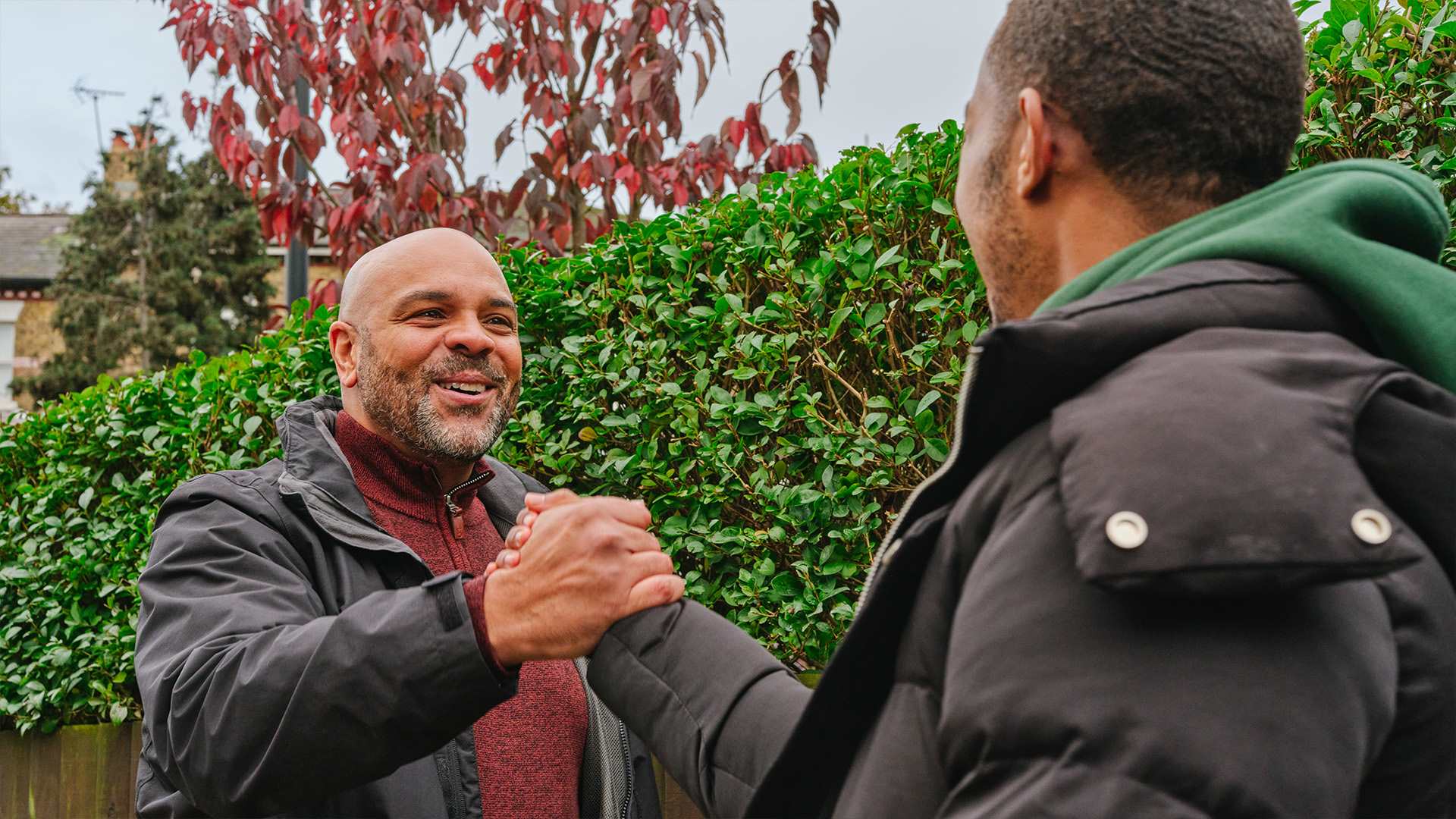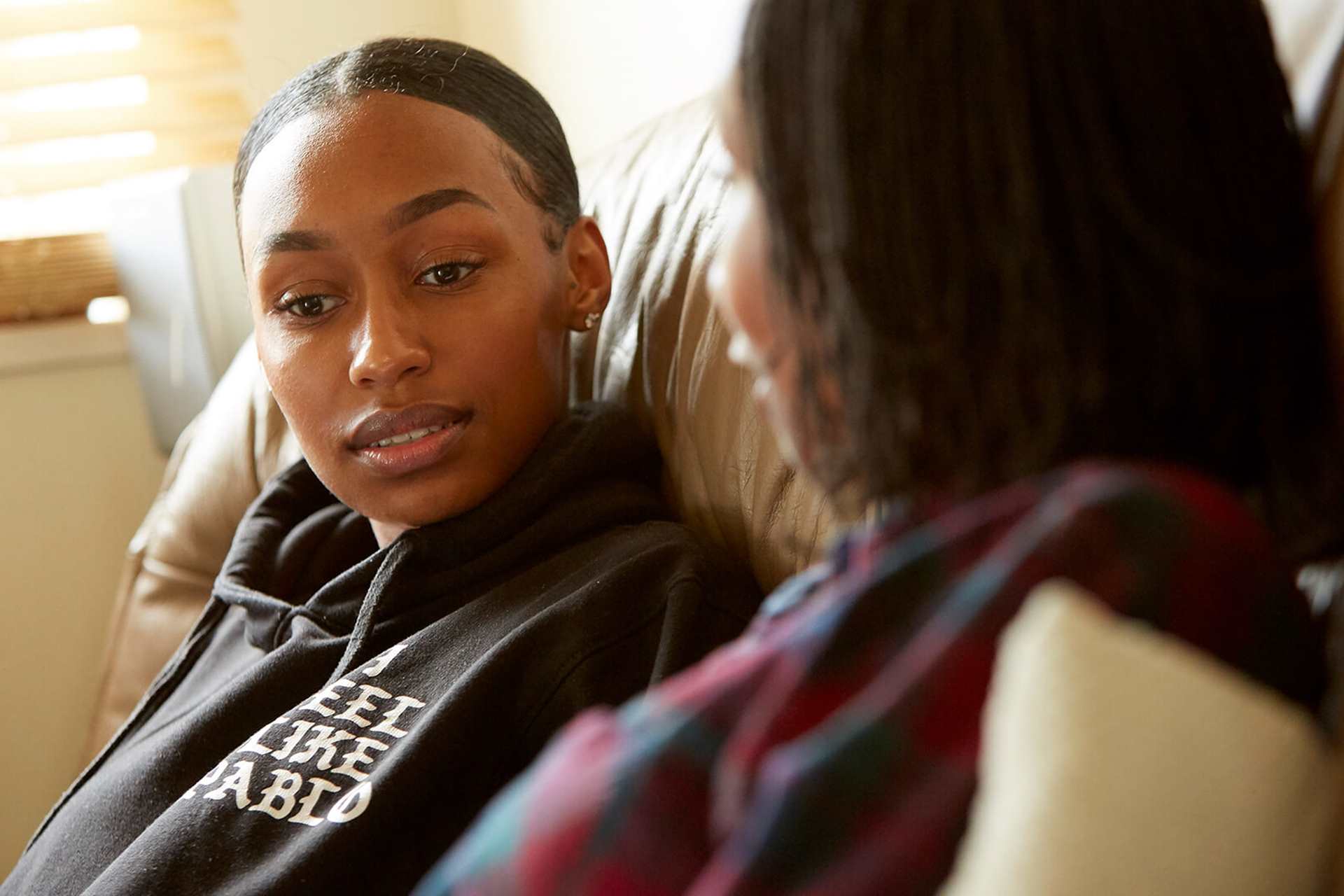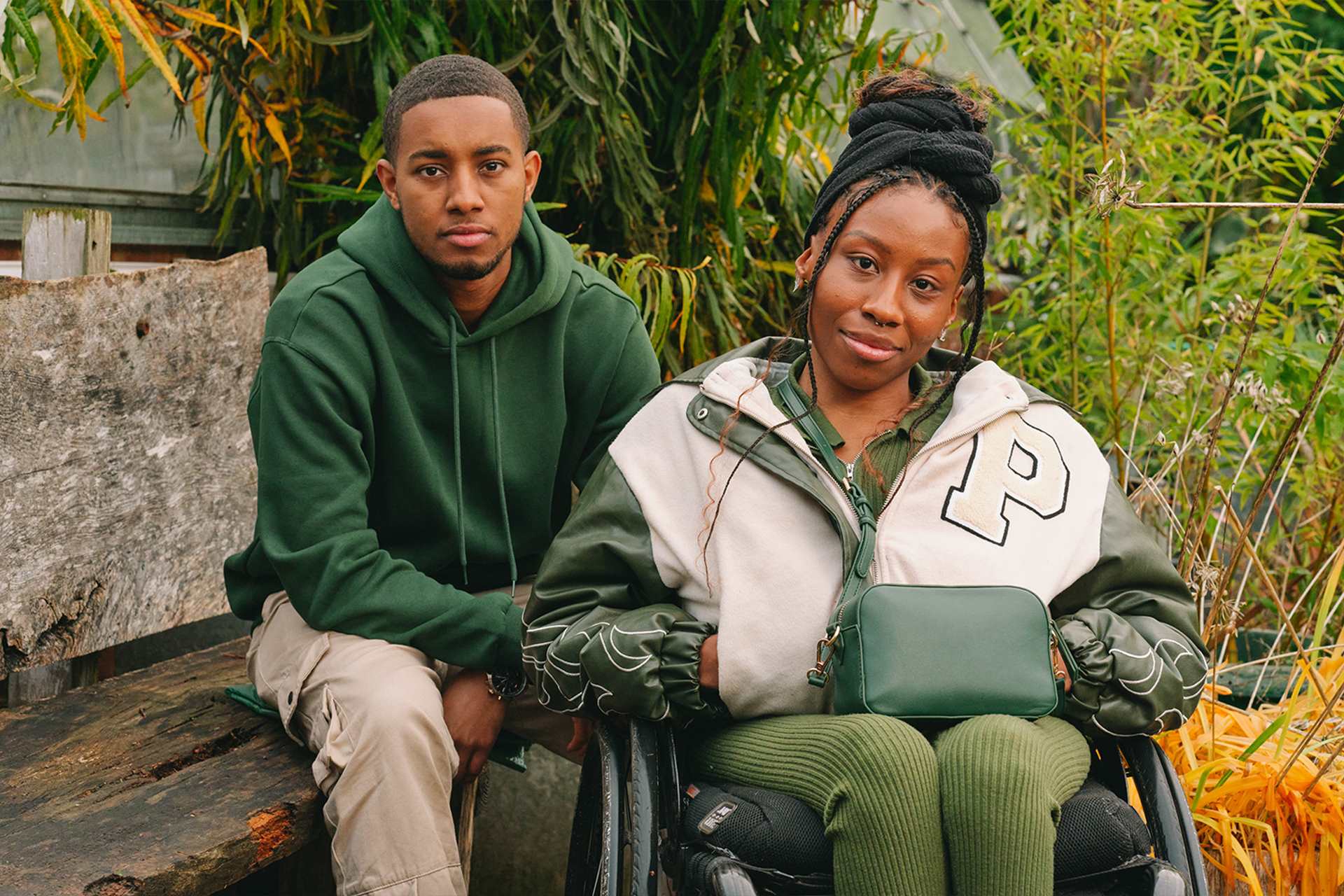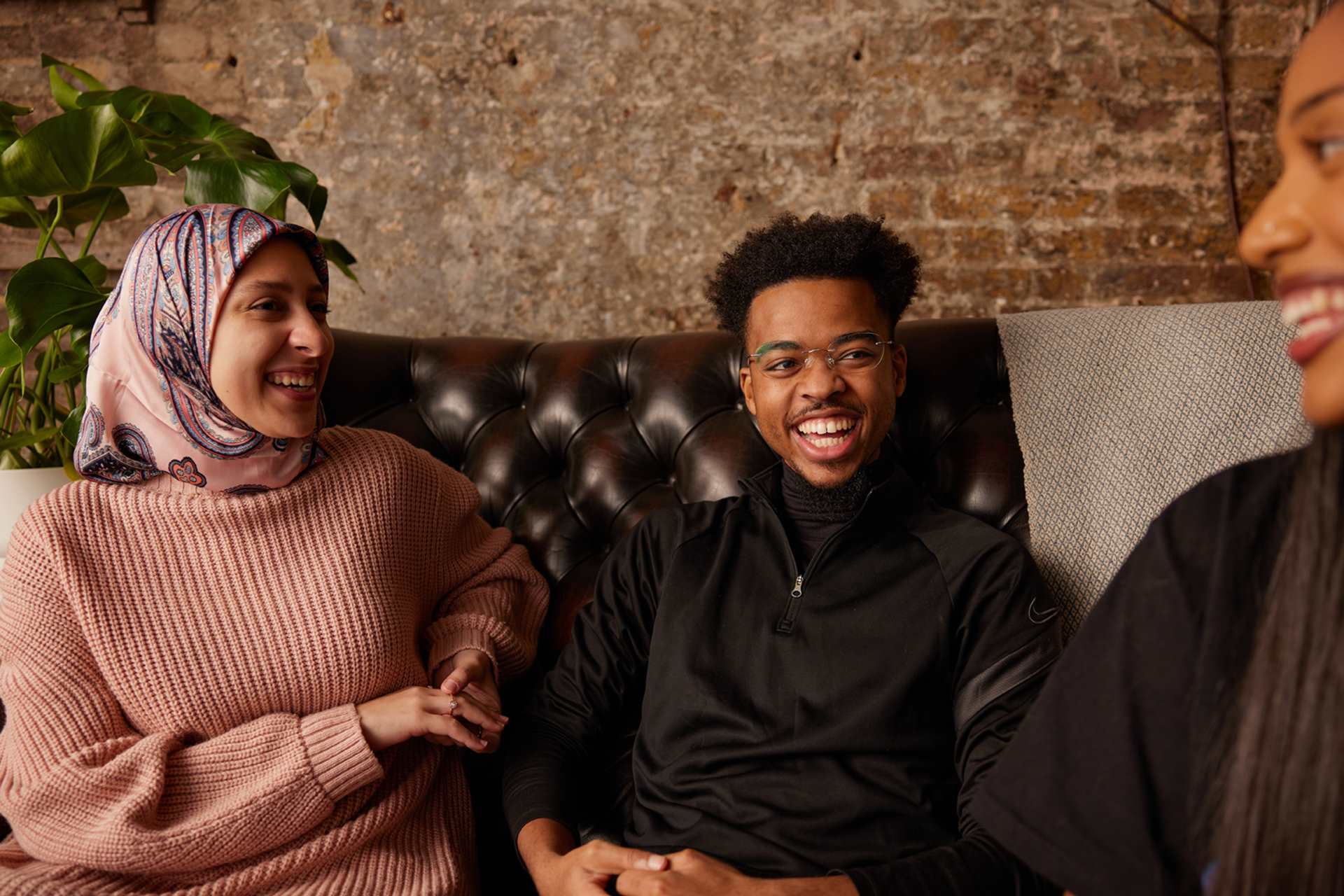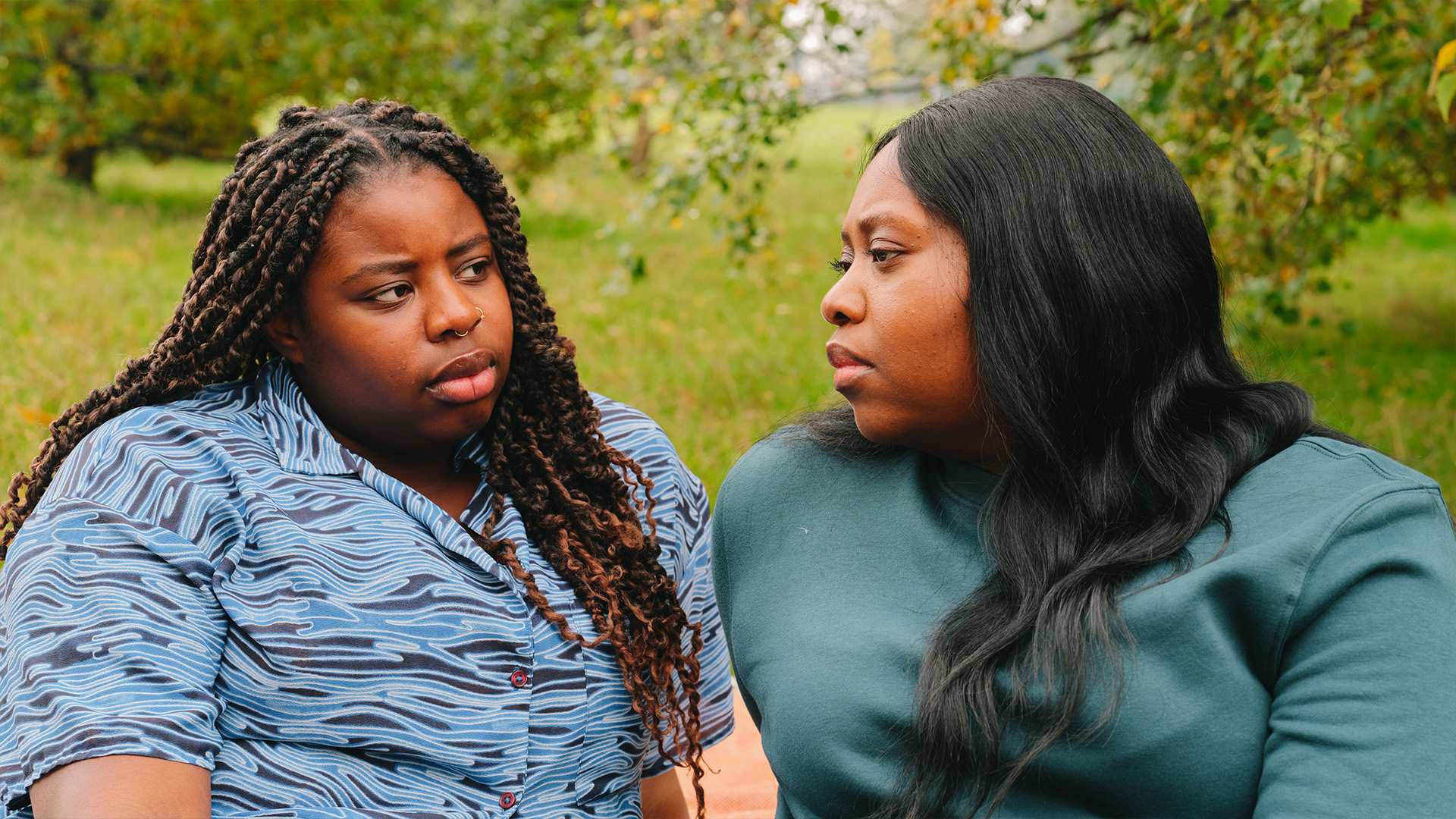
Sometimes, life can be tough. And when life’s tough, things can get overwhelming and make it hard to manage your feelings. But you don’t have to go it alone.
Reaching out for help isn’t easy. It’s common to feel unsure about how to ask, or wonder if you need to reach out at all. But asking for help is always okay. Whether you’re going through something big right now, have an ongoing mental health problem that needs support, or you’re just having a bad day, the important thing is not to try and cope on your own.
Asking for help is the first step to feeling better. And we’re here to help you start.
Who to turn to
Everyone’s support network is different and only you can know best who you feel most comfortable to turn to. But when you’re ready to reach out, there are plenty of people who can help.
Sometimes, just talking to a friend or family member can make all the difference. But it’s not always easy. For more advice on how to talk to friends and family, our tips on how to ask for help can support you.
If your relationship with friends or family is what’s getting you down, we have advice that can help.
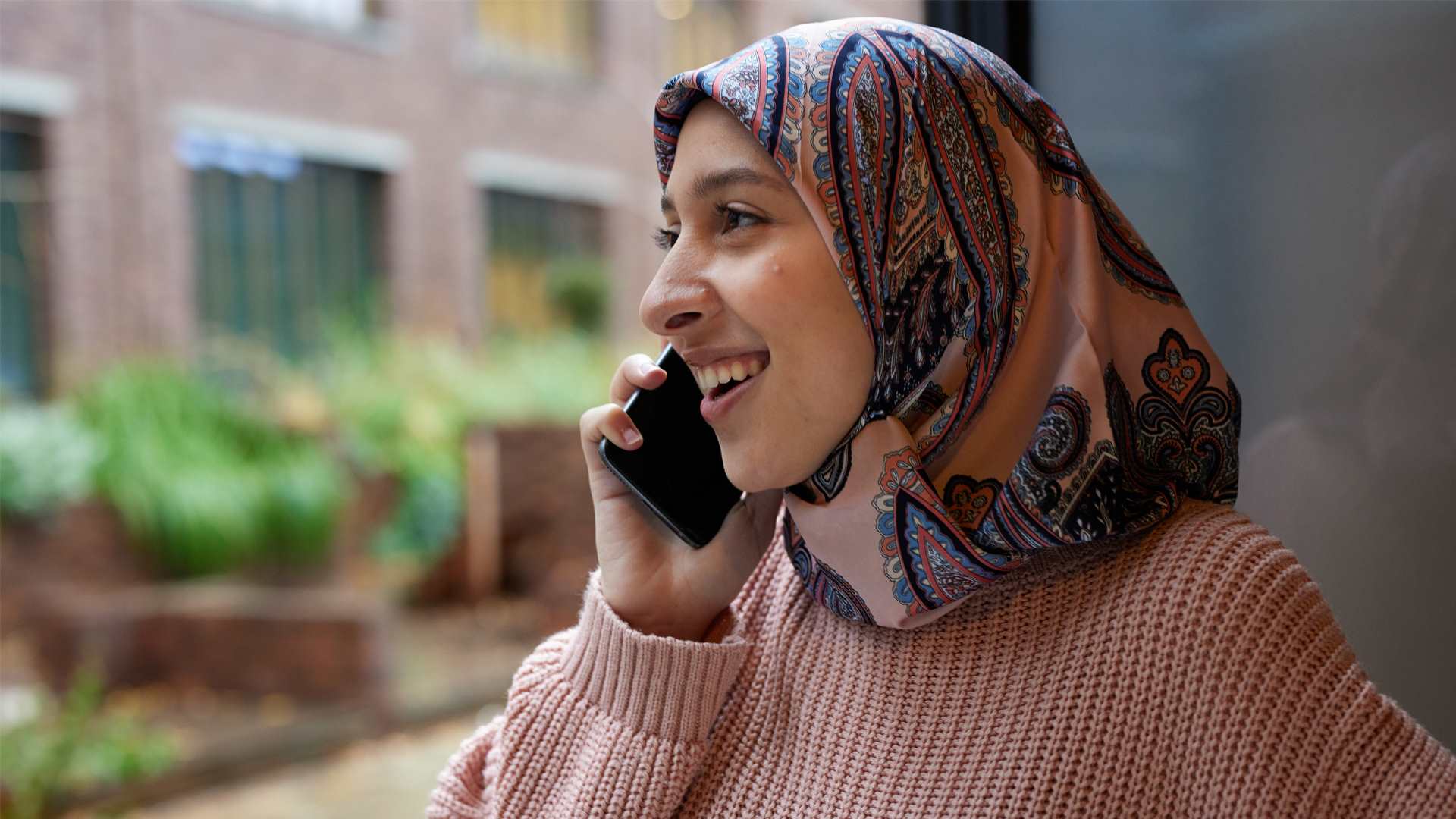
I can’t remember too much about the call, but I do remember that I had never felt so heard and understood until that moment. I was bawling my eyes out, and the person on the end of the phone was warm, kind and patient. They lifted an enormous weight off me simply by being there for me in my moment of crisis.
Going to your GP about mental health can feel like a big deal, but GPs are trained to support you with your mental health as well as your physical health. They can help get you the right support.
If you’re worried about speaking to your GP for any reason, we have tips that can support you in our guide, including tips on how to prepare, what your rights are and what to do if you’re unhappy with your appointment.
Schools, colleges and universities often have counsellors or support services for students that can support you with your mental health. Talk to a teacher or trusted adult who can help you find the right support.
When talking to a teacher or trusted adult, be aware that they may not be able to keep what you say confidential, but this is only so that they can best support you.
For university students, you can search on Student Space to find out what support is available at your university.
Some workplaces also offer wellbeing support through an employee assistance programme (EAP). Speak to your manager or human resources (HR) department to see if your workplace has a programme like this.
If you’re religious, talking to a faith leader or trusted member of your religious community could offer some comfort and guidance.
For young Muslims seeking help, you can also call the Muslim Youth Helpline.
It may feel different but support groups are a safe space for people to come together, share their experiences and be there for each other. You can search for local peer support groups on Hub of Hope.
Barriers to reaching out for help
There are lots of things that might be stopping you from asking for help. You might be worried about:
- what others might think
- the problems not being serious enough, or not being taken seriously
- putting an extra strain on mental health services
- help being unavailable, difficult to get, or not being right for you
- things getting worse when you ask for help, like making your family worry
- how to ask for help or how to express your concerns
It’s normal to feel worried about these things. But don’t let this stop you reaching out. It’s always okay to ask for help. Your feelings are valid and you are not burdening anyone by speaking up.
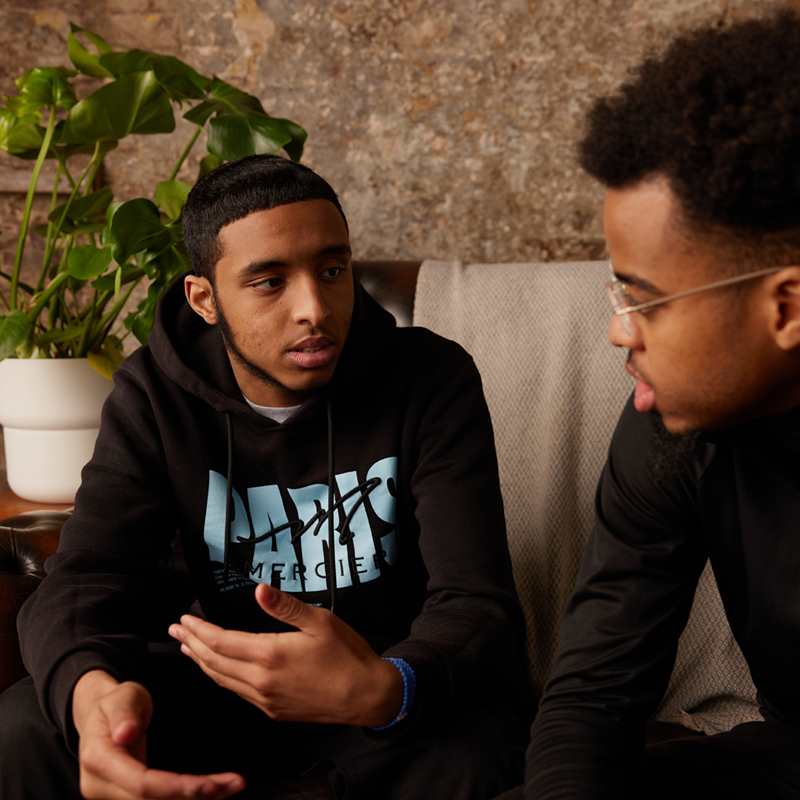
It's okay to reach out
Getting help can feel especially hard if it's not something you've done much before, or if society tells you that you should just be strong and get on with it. But the more these conversations happen, the easier they become and the more natural they'll start to feel.
In this video, our Ambassador Cacherel sits down with a group of boys at school to talk about their feelings around reaching out for support.
Waiting for support
It can be incredibly frustrating when you reach out for support with your mental health, only to find long waiting lists and overwhelmed support services. It’s disheartening to realise that the system designed to help you might not be there for you when you need it most. But don’t give up hope. Even though the road to getting support may be challenging, it’s worth sticking with it. Your wellbeing matters and taking the first step to ask for help is incredibly brave. While you’re waiting, reach out to friends and family, people you trust, or online support groups and helplines. You are not alone on this journey, and there are people out there who can help you through this difficult time.
Self-care
Self-care is an important part of feeling comfortable in who you are. If you’re finding it hard to reach out, or struggling while you wait for support, try to think of ways you can make yourself feel better. This can be small things like watching a show you like or bigger things like planning a day out. Our guide to self-care can help.
How to ask for help
Opening up about how you feel can be scary. It's normal to worry about how people will react or that talking about things might cause other problems. But reaching out is always okay and it’s the first step to getting better. Here are some tips to help you talk to someone.
What do you want to get from the conversation? You might want practical advice and support, or perhaps you just need someone to listen. It’s okay if you’re not sure what you want, but if you do know, tell the person you’re reaching out to so they know how best they can help.
If you want what you share to be kept private, it might be helpful to say this before you start the conversation and explain why. Not everyone you speak to will be able to keep what you say private, but they will tell you if they need to pass the information on.
Sometimes speaking face-to-face can feel too much. If that’s the case for you, there are lots of other ways you can reach out for help. Whether it's by text, over the phone, or in a letter or email, think about how you feel most comfortable to express yourself.
If you do want to talk in-person, it might help to practise what you want to say first. This can help build your confidence and work out what you want from the conversation. You could write down what you want to say, and even let the other person read your notes if talking becomes too difficult.
Talking about how you feel is already tough, so make it easier for yourself by picking a time and place that works for you. It can help to find a quiet, private space where you can talk without interruptions.
Remember that the first conversation you have with someone doesn’t have to be the last. It’s unlikely that everything will be magically better after one conversation, but know that it’s a really positive first step.
Take the conversation at your own pace. You don’t have to share everything right now if you don’t want to. If you think it would be helpful to have another conversation but you need some time, try saying: "It's been really helpful to talk to you about how I'm feeling. I'd really like it if we could talk about this again sometime soon."

You deserve help and support
Sometimes when you reach out for help, the person you talk to might not react the way you hoped. This can be really tough.
They might not share the same understanding of mental health as you, perhaps because of their culture, age or gender, or there might be another reason they’ve reacted that way. But know that if this happens, their reaction is about them, not you.
Don’t let people’s reactions discourage you from reaching out again, whether that be to the same person or someone else you trust. Remember, you can always contact a helpline for support.
My message for other young Muslims is to understand that there is often going to be a difference in attitudes towards mental health between their generation and older generations. The generation before us lived through a different time where certain aspects of society were emphasised and other aspects were ignored. However, as time progresses, attitudes can shift. Please don’t let it get you down.
Within the Black community, I’ve noticed that struggling with your mental health can be seen as a “weakness” or that “people with mental health issues aren’t actually ill like physically ill people." Over the years I have wondered, would it be easier if talking about mental health was part of my Caribbean culture?
More information and support
Get help now
Here are some helplines and websites where you can find information and advice or talk to someone about what you’re going through.
-
Childline
If you’re under 19 you can confidentially call, chat online or email about any problem big or small.
Sign up for a free Childline locker (real name or email address not needed) to use their free 1-2-1 counsellor chat and email support service.
Can provide a BSL interpreter if you are deaf or hearing-impaired.
Hosts online message boards where you can share your experiences, have fun and get support from other young people in similar situations.
- Opening times:
- 24/7
-
Muslim Youth Helpline
Provides faith and culturally sensitive support for young Muslims.
Online chat service available during opening hours.
- Opening times:
- 4pm - 10pm, 365 days a year
-
Samaritans
Whatever you're going through, you can contact the Samaritans for support. N.B. This is a listening service and does not offer advice or intervention.
- Opening times:
- 24/7
-
Youth Access
Provides information about local counselling and advice services for young people aged 11-25.
Put in your location and what you need help with into their 'Find help' search, and see what services are available in your area.
-
Tellmi
Formerly known as MeeToo. A free app for teenagers (11+) providing resources and a fully-moderated community where you can share your problems, get support and help other people too.
Can be downloaded from Google Play or App Store.

This page was reviewed in March 2024.
It was co-created with young people with lived experience of reaching out for help for their mental health.
We will next review the page in 2027.
YoungMinds is a proud member of PIF TICK – the UK's quality mark for trusted health information.
Whether you love the page or think something is missing, we appreciate your feedback. It all helps us to support more young people with their mental health.
Please be aware that this form isn’t a mental health support service. If you are in crisis right now and want to talk to someone urgently, find out who to contact on our urgent help page.
